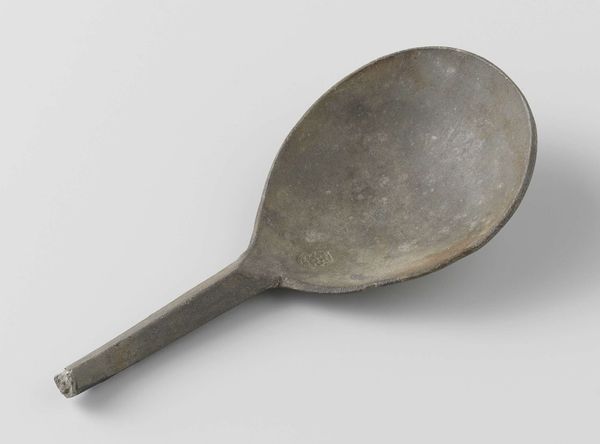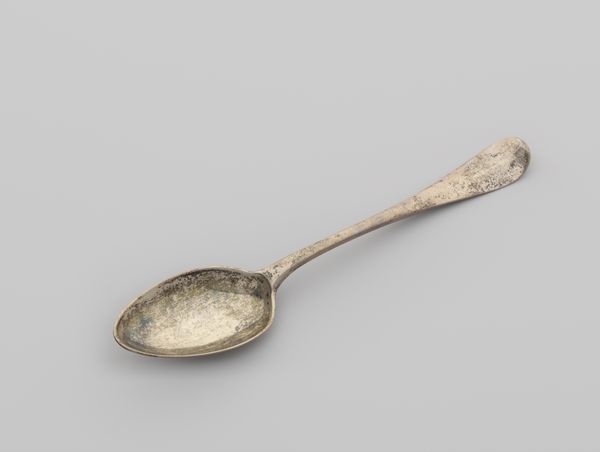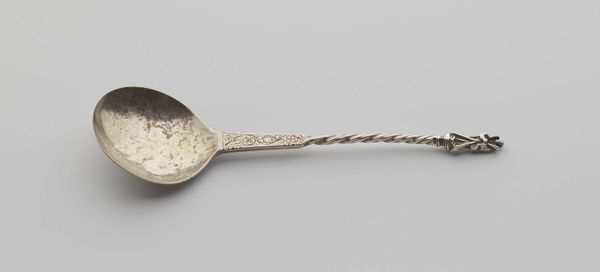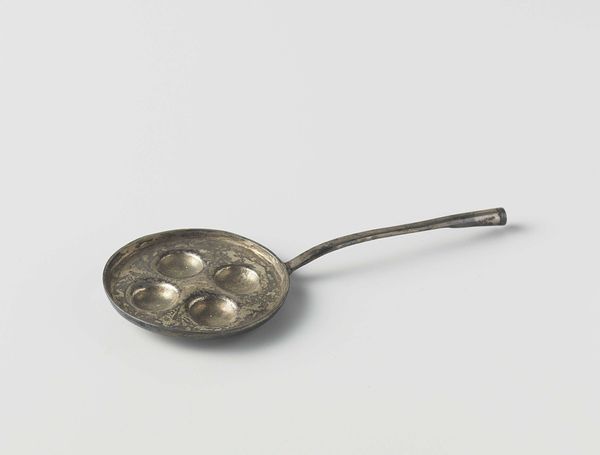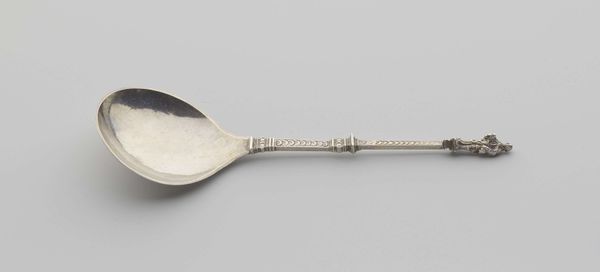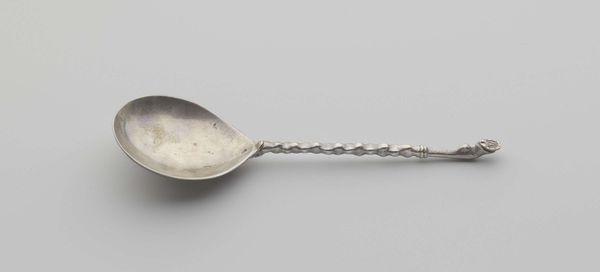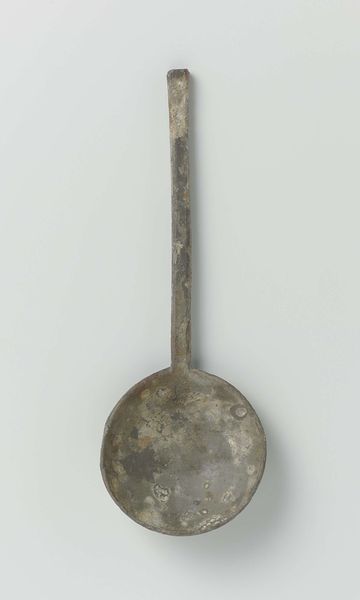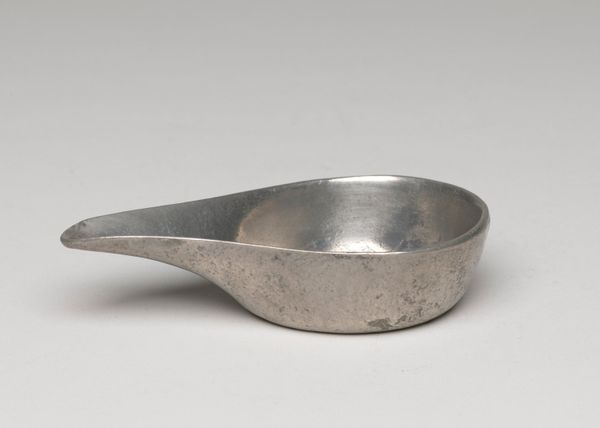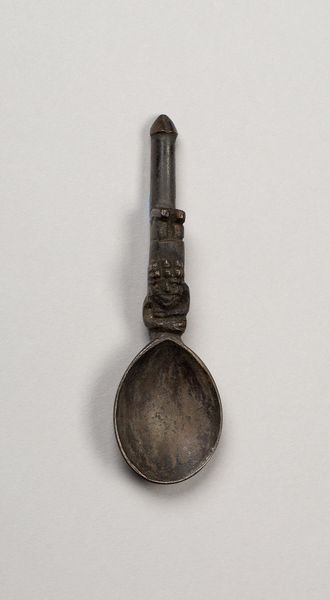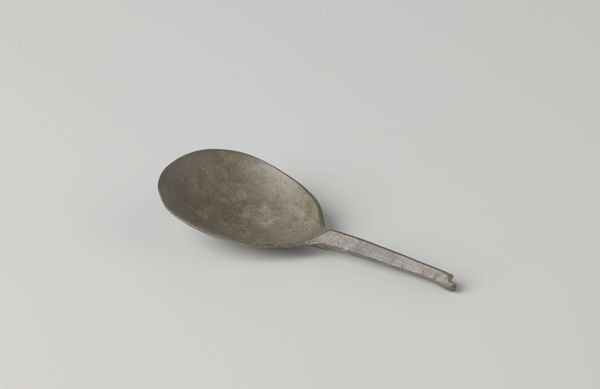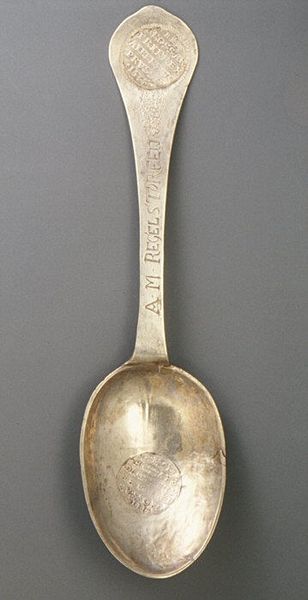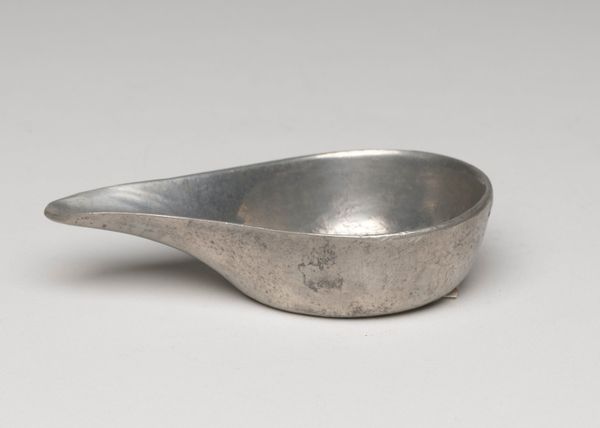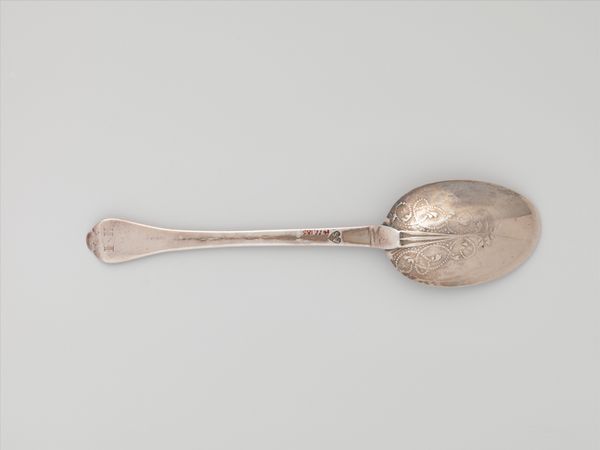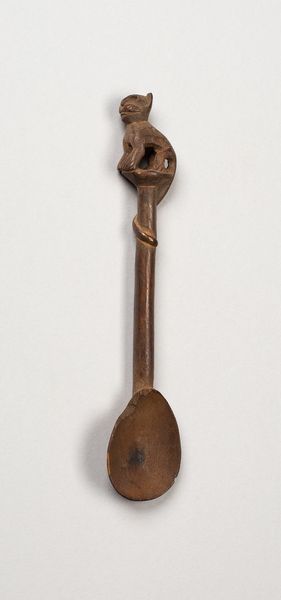
Lepel met ronde bak en rechte platte steel met een zeskantige doorsnede c. 1590 - 1596
0:00
0:00
anonymous
Rijksmuseum
#
3d sculpting
#
3d model
#
3d printed part
#
rounded shape
#
plastic material rendering
#
virtual 3d design
#
sculptural image
#
curved arc
#
3d shape
#
metallic object render
Dimensions: length 16.7 cm, diameter 6 cm, height 1.5 cm
Copyright: Rijks Museum: Open Domain
Editor: Here we have a spoon with a rounded bowl and straight, flat handle with a hexagonal cross-section. It was crafted sometime between 1590 and 1596, attributed to an anonymous artist, and currently resides in the Rijksmuseum. I'm immediately struck by how humble and everyday it appears. What's your take? Curator: It is humble, isn’t it? When looking at everyday objects from the past, it’s key to consider their societal context. Something as simple as a spoon reveals insights into class structures and material culture. Think about who would have owned such a spoon, what materials it's made from, what kind of food it would have been used for. What does this object tell us about dining customs and access to resources during the late 16th century? Editor: That’s a really good point. I hadn’t really thought about the class implications. So, its design… does the straight handle indicate something about functionality or aesthetics? Curator: It suggests both, possibly intersecting. The straight, flat handle might reflect a practical concern, for ease of use and cleaning, while the hexagonal cross-section could have been a subtle marker of status. A more elaborate spoon might signify wealth and power. Also, let's think about gender. Were spoons gendered objects in any way? Who made them? Who used them most frequently? Editor: I suppose the person who spent more time in the kitchen. Thinking about the domestic space provides such a useful frame, I never thought that a spoon could be such a loaded object. Curator: It’s precisely in the mundane where we often uncover the most profound social narratives. Paying attention to everyday items enables us to rethink power structures and lived experiences of the past. Editor: Thank you. That's given me so much to consider, and so many new questions about something I previously took for granted.
Comments
No comments
Be the first to comment and join the conversation on the ultimate creative platform.
